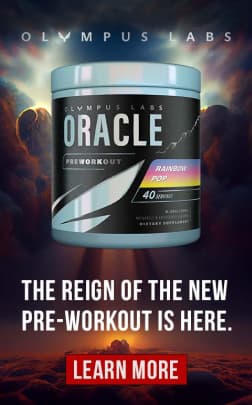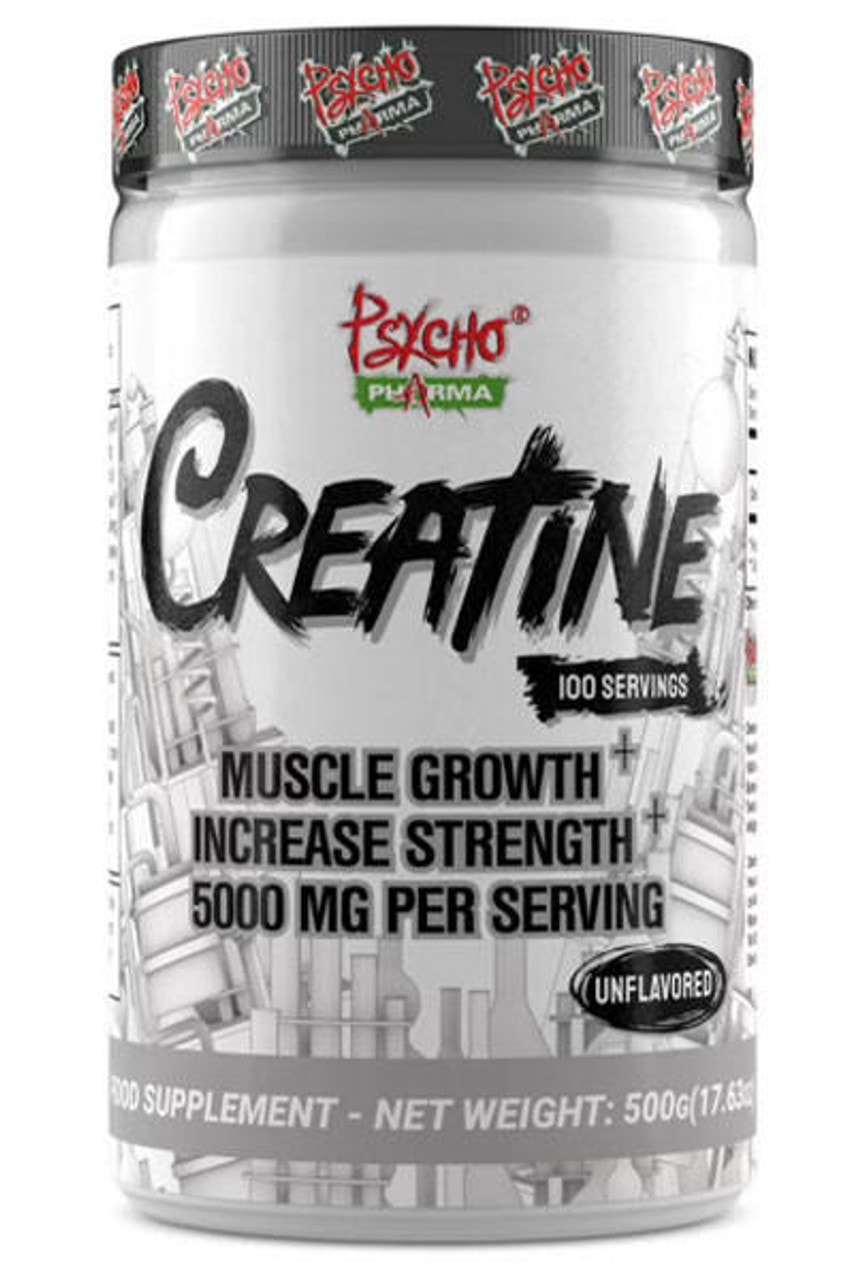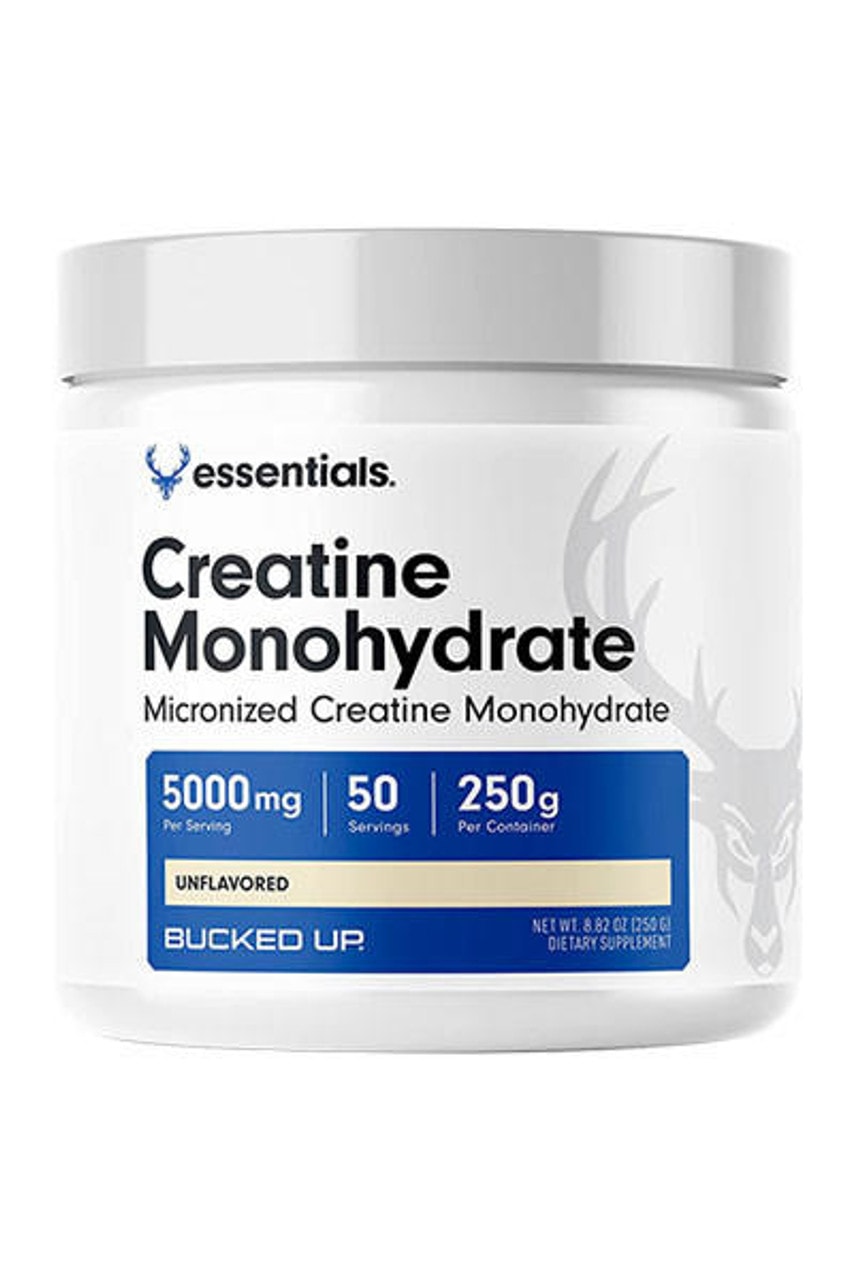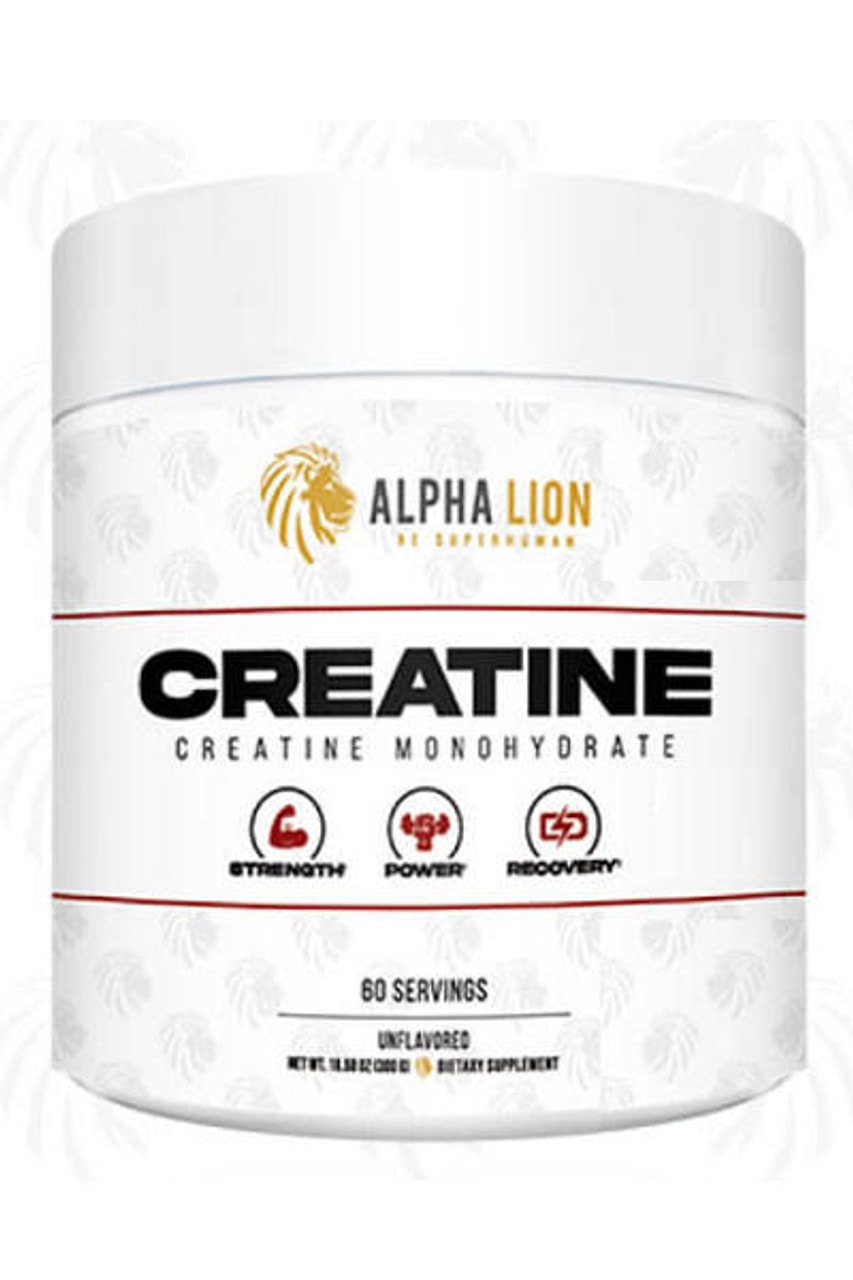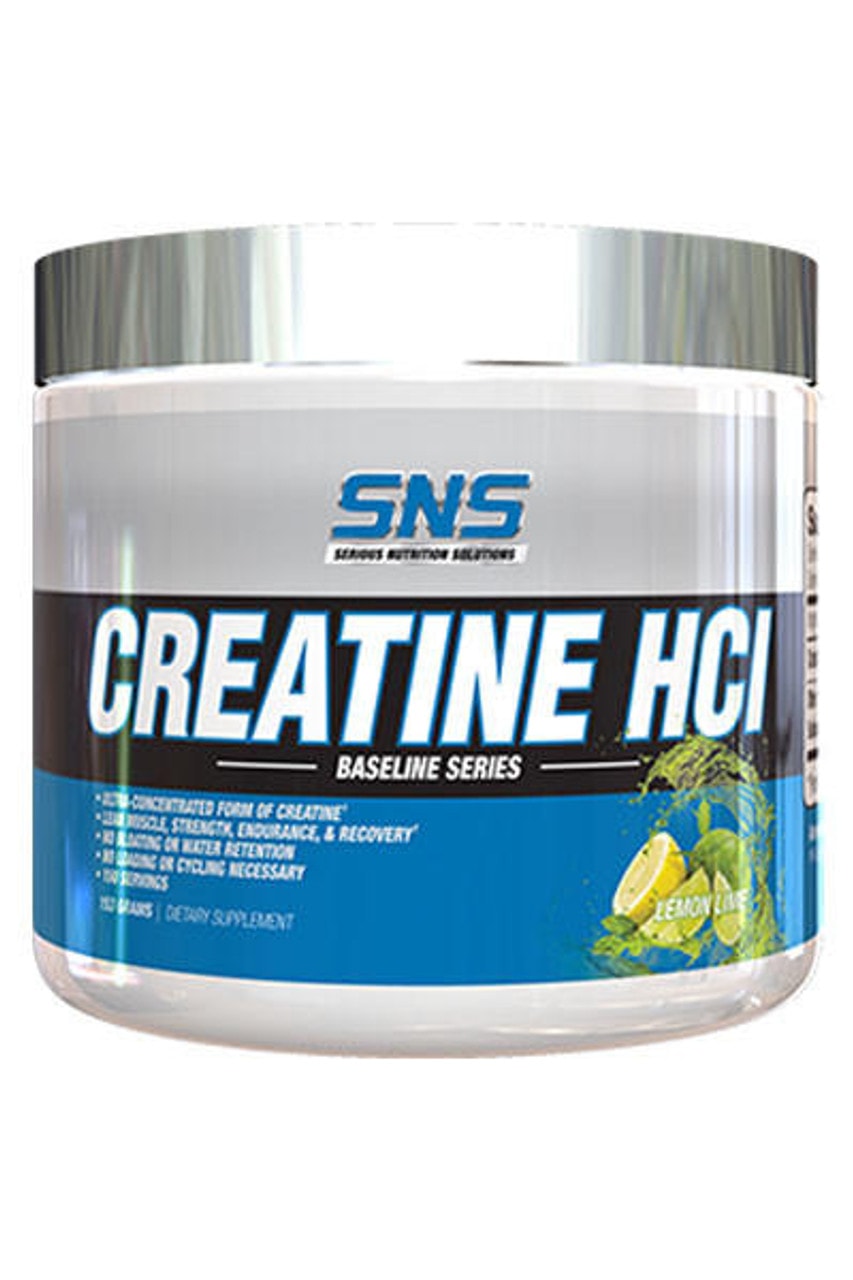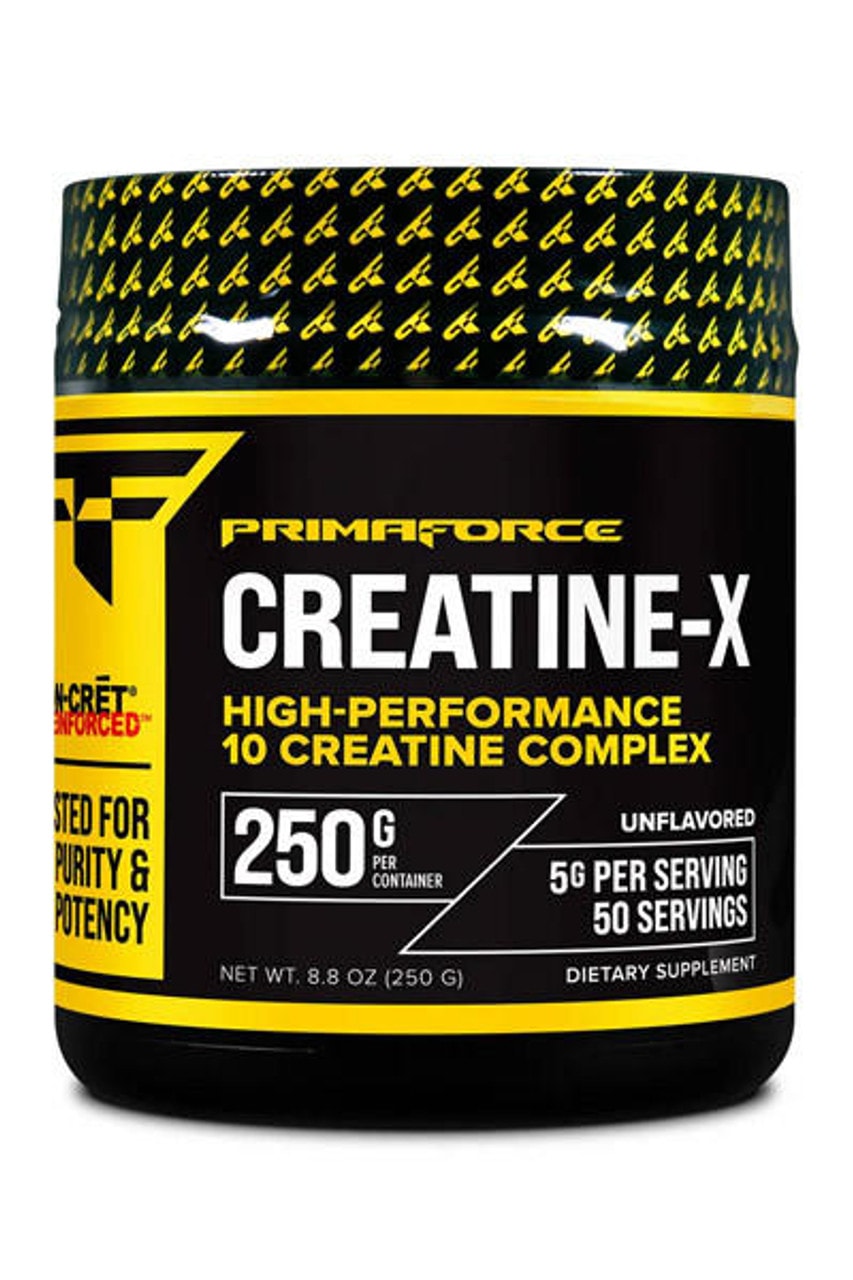Creatine HCL vs. Monohydrate: Which is Right for You?
Posted by Leonard Shemtob on Nov 12, 2024
When it comes to boosting workout performance and muscle growth, creatine is one of the most popular supplements on the market. Among the various forms available, two of the most talked-about are Creatine HCL (hydrochloride) and Creatine Monohydrate.
But what's the difference between them, and which one is right for you? In this article, we'll break down the key differences, benefits, and potential drawbacks of Creatine HCL vs. Creatine Monohydrate, helping you decide which form might be the best choice for you.
[Related Article] Creatine Nitrate vs Monohydrate: What's The Difference?
Short Summary
- Creatine Basics: Creatine is a popular supplement used to improve athletic performance and support muscle growth.
- Creatine HCL vs. Monohydrate: The two main types of creatine, each with unique benefits and characteristics.
- Creatine HCL: Learn about the pros and cons of creatine HCL, including its potential for faster absorption and reduced side effects.
- Creatine Monohydrate: Discover the benefits and drawbacks of creatine monohydrate, the most studied and widely used form of creatine.
- Side Effects: While both forms are generally safe, some users report fewer side effects, such as bloating or stomach discomfort.
- Choosing the Right One: The choice depends on personal goals, budget, and how your body responds to each type.
- Top Supplement Picks: For creatine monohydrate, Creatine by Psycho Pharmais a suitable option; for creatine HCL, Creatine HCI by SNScan be considered; and for those looking to benefit from both forms, Creatine X may provide a balanced choice.
What is Creatine?
Creatine is a naturally occurring substance found in small amounts in certain foods and produced by our bodies. It is primarily stored in our muscles, where it plays a major role in providing energy during high-intensity exercise like weightlifting or sprinting.
Your body synthesizes creatine from three amino acids ( glycine, arginine, and methionine) predominantly in the kidneys, liver, and pancreas, and stores it primarily in your muscle tissue.
When you perform short bursts of intense activity, your body uses a molecule called ATP (adenosine triphosphate) for energy. Creatine helps replenish ATP levels, allowing you to maintain your performance for longer periods.
When you take creatine as a supplement, it helps increase your muscles’ ability to produce energy, enabling you to push harder during your training. This can lead to better performance, more strength, and faster muscle recovery.
Types of Creatine
There are several types of creatine supplements, but the most common and widely used are:
- Creatine Monohydrate: This type is the most widely used and researched form of creatine. It's effective for increasing strength and muscle mass and is usually the most affordable option.
- Creatine HCL (Hydrochloride): This form is known for its better solubility in water, which may lead to improved absorption.
- Creatine Ethyl Ester: This type is modified to enhance absorption and reduce water retention. However, research on its effectiveness compared to monohydrate is limited.
- Buffered Creatine (Kre-Alkalyn): This version has a higher pH level, which may help reduce breakdown in the stomach and improve absorption.
- Creatine Citrate: This form is bound with citric acid, making it more soluble in water. It's often marketed as being easier on the stomach, but it may require a larger dose to achieve the same effects as monohydrate.
- Creatine Malate: A combination of creatine and malic acid, often used by athletes who experience bloating with other forms.
What Is Creatine Monohydrate?
Creatine monohydrate is the most well-known and widely used form of creatine. It consists of a creatine molecule combined with one molecule of water, making it stable and easily absorbed by the body.
It’s known for being highly effective in boosting strength, power, and muscle mass. Creatine monohydrate is also one of the most researched supplements available, with numerous studies proving its benefits. It’s affordable, easy to find, and generally well-tolerated by most people.
Benefits of Creatine Monohydrate
Increased Strength and Power: Creatine helps your muscles produce more energy during high-intensity exercise, allowing you to lift heavier weights and perform better during sprints or short bursts of activity.
Improved Muscle Growth: By enhancing your workout performance, creatine monohydrate can help stimulate muscle growth over time, leading to bigger and stronger muscles.
Better Recovery: Creatine can reduce muscle damage and inflammation, helping you recover faster between workouts.
Enhanced Exercise Performance: It’s particularly effective for activities that require quick bursts of energy, like lifting weights, running, and jumping.
Brain Health Support: Some studies suggest that creatine may also have benefits for cognitive function, though more research is needed in this area.
Safety and Affordability: It is one of the most researched supplements available, with a proven safety record. It is also typically more affordable than other forms of creatine, making it accessible for most people.
Pros and Cons of Creatine Monohydrate
Pros
- Well-Researched: Creatine monohydrate is the most studied form of creatine, with plenty of evidence showing it works.
- Effective: It helps improve strength, performance, and recovery.
- Affordable: Creatine monohydrate is often the least expensive option compared to other types of creatine.
- Widely Available: It’s easy to find at most stores or online.
Cons
- Water Retention: Some people may experience water retention, leading to temporary weight gain and a bloated feeling. However, some old studies suggest that cell swelling can stimulate protein synthesis, which is essential for muscle growth.
- Stomach Discomfort: In some cases, creatine monohydrate supplementation can cause mild stomach upset, especially if not taken with enough water.
- Solubility: It is less soluble than other forms, which may require you to drink more water.
- Requires Loading Phase: To get the full benefits, some people follow a loading phase (higher dose for several days), which can be inconvenient.
- Weight gain: Creatine can lead to initial water weight gain, which may be undesirable for some.
- Kidney strain: While rare, excessive intake may put a strain on the kidneys in susceptible individuals.
Best Creatine Monohydrate Supplements
1- Creatine by Psycho Pharma
Psycho Pharma’s Creatine Supplement provides 5 grams of creatine monohydrate. Creatine is widely recognized for its ability to enhance muscle growth, strength, endurance, and overall performance. It remains one of the most reliable supplements available for supporting physical fitness goals.
Key Benefits
- It increases your strength.
- It enhances muscle growth.
- It improves endurance.
- It boosts your overall athletic performance.
Key Ingredients
- Creatine Monohydrate
Customer Reviews
 Good stuff
Good stuff
“good stuff, good quality, good price - will order again”
-Dez
2- Bucked Up Creatine Monohydrate
Bucked Up’s Creatine Monohydrate is a popular supplement used to support muscle growth, strength, and athletic performance. It contains micronized creatine monohydrate, a highly absorbable form of creatine that can help fuel muscle growth and improve exercise performance.
Key Benefits
- It boosts muscle growth.
- It increases lean body mass and muscle volume.
- It enhances your strength and power.
- It improves your exercise performance.
- It helps improve your endurance.
- It accelerates your muscle recovery.
Key Ingredients
Customer Reviews
 Creatine
Creatine
“This is a solid creatine with nothing bad to say about it - it does what its meant to do. No bad taste - mixes easy etc.. 5 stars.”
-Rgd
3- Alpha Lion Creatine Monohydrate
Creatine Monohydrate by Alpha Lion provides premium-grade, micronized creatine to support muscle growth, strength, and performance. This highly absorbable form of creatine is designed to effectively fuel your muscles for improved fitness results.
Key Benefits
- It increases muscle protein synthesis.
- It enhances muscle size, strength, and growth.
- It boosts cellular water retention.
- It maximizes strength and power.
- It supercharges your exercise performance.
- It supports enhanced muscle recovery.
Key Ingredients
- Micronized Creatine Monohydrate
Customer Reviews
 Great quality & solid results!
Great quality & solid results!
“I've been a huge fan of Alpha Lion and decided to combine their creatine along with SuperHuman Muscle and SuperHuman Pump... The results clearly spoke for themselves when friends at the gym stopped me to compliment me on my progress. Super motivating especially when you start seeing your hard work paying off whenever you flex in the mirror after getting a sick pump in at the gym. Big vouch for Alpha Lion!”
-Bryce
What is Creatine HCL?
Creatine HCL, or creatine hydrochloride, is a new form of creatine that combines creatine with hydrochloric acid. This combination makes it more soluble in water than other forms, such as creatine monohydrate. Because of its enhanced solubility, Creatine HCL is absorbed more quickly by the body, leading to faster delivery to muscle cells.
One of the primary benefits of Creatine HCL is that it typically requires smaller doses to achieve similar effects as creatine monohydrate. Additionally, many users report fewer side effects, such as bloating and water retention, which are sometimes associated with creatine monohydrate.
While there is limited research on creatine HCL, it is believed to offer similar benefits to creatine monohydrate, such as increased muscle strength, power, and size.
Benefits of Creatine HCL
Better Absorption: Creatine HCL is more water-soluble, meaning your body can absorb it more easily, leading to faster and more efficient use.
Reduced Bloating: Many users find that creatine HCL causes less bloating and water retention compared to creatine monohydrate, making it a more comfortable option.
Smaller Dose Needed: Since creatine HCL is more concentrated, you may need to take a smaller dose to get the same results as creatine monohydrate.
No Loading Phase Needed: Unlike creatine monohydrate, which often requires a loading phase (taking higher doses for a few days), Creatine HCL can be taken without this step.
Improved Performance: Like other types of creatine, HCL can help boost strength, power, muscle growth, and endurance during high-intensity workouts.
Easier on the Stomach: Creatine HCL is less likely to cause stomach discomfort or cramping, making it a great choice for people with sensitive digestion.
Pros and Cons of Creatine HCL
Pros
- Better Absorption: Creatine HCL is more easily absorbed by your body, which may help you see results faster.
- Less Bloating: It’s less likely to cause bloating or water retention, making it a more comfortable choice for some people.
- Smaller Dose: You need to take a smaller amount to get the same benefits as creatine monohydrate.
- Similar benefits to monohydrate: It offers similar potential benefits in terms of muscle strength, power, and growth.
- Less Water Retention: Creatine HCL is less likely to cause water retention, which means you may not experience the temporary weight gain that can occur with other forms of creatine.
- Easier on the Stomach: Creatine HCL is less likely to cause stomach discomfort or cramping.
Cons
- Limited Research: While there are some studies supporting the effectiveness of Creatine HCL, it is not as extensively researched as creatine monohydrate. This means there is less evidence to confirm its benefits.
- More Expensive: Creatine HCL is usually more expensive than creatine monohydrate. While creatine HCL is more expensive, it’s more concentrated, so you’ll need smaller servings. This means it can last longer, but overall, you’ll still spend more per serving compared to creatine monohydrate.
- Potential Interactions with Other Supplements: Creatine HCL can sometimes interact negatively with other substances, especially caffeine. Research from the National Institutes of Health shows that while creatine and caffeine don’t directly affect each other’s processing, caffeine may reduce creatine’s performance benefits, possibly due to differences in muscle relaxation. Some studies found reduced effects of creatine when combined with caffeine, along with gastrointestinal discomfort. As you can guess, not being able to take caffeine pre-workout and creatine can make you feel more fatigued and less focused during workouts.
Best Creatine HCL Supplements
1- Creatine HCL by SNS
SNS Creatine HCL is a concentrated form of creatine that may offer faster absorption compared to creatine forms. It is designed to support muscle growth, strength, and performance without causing bloating or fluid retention.
Key Benefits
- It supports lean muscle growth.
- It enhances your strength and power.
- It boosts endurance and recovery.
- It promotes cell volumization.
- It improves your overall workout performance.
Key Ingredient
- Creatine HCl
Customer Reviews
 It Works
It Works
“This product contributes to my gains.”
-Scott C.
 It works
It works
“This supplement supports my workout. It has accelerated my progress.”
-Scott C.
Best Creatine HCL and Monohydrate Supplement
1- Creatine-X by PrimaForce
Primaforce offers Creatine-X, a creatine supplement designed to support muscle growth and enhance athletic performance. This product features a 10 Creatine Complex, providing 5 grams of creatine per serving and a total of 250 grams per container.
Key Benefits
- It increases your strength.
- It helps improve power and endurance.
- It supports lean muscle mass.
- It accelerates your muscle recovery.
Key Ingredients
- Creatine Monohydrate
- Creatine Chelate
- CON-CRET® Creatine HCl
- Creatine Citrate
- Creatine Anhydrous
- Creatine AKG (2:1) Creatine Ethyl Ester HCl
- Creatine Pyruvate
- Di-Creatine Malate
- Tri-Creatine Malate
Creatine HCL vs. Creatine Monohydrate: What's the Difference?
The main differences between creatine monohydrate and creatine HCL come down to how they’re absorbed, dosage, side effects, and cost:
Solubility and Absorption
- Creatine Monohydrate: This form is less soluble in water, which can make it slower to absorb. Some people may experience bloating or stomach discomfort when taking it.
- Creatine HCL: This form is more soluble and absorbs quickly, which means it can be delivered to your muscles faster and with fewer side effects.
Dosage
- Creatine Monohydrate: Typically requires a larger dose, often around 5 grams per serving, and may involve a loading phase to saturate the muscles quickly.
- Creatine HCL: Usually requires a smaller dose (about 1-2 grams) due to its better absorption, and you can skip the loading phase.
Side Effects
- Creatine Monohydrate: Some users report side effects like bloating, water retention, and gastrointestinal issues.
- Creatine HCL: Many users find that it causes fewer side effects, making it a more comfortable option for those sensitive to creatine.
Research and Evidence
- Creatine Monohydrate: This form has been extensively studied and is widely regarded as effective for increasing strength and muscle mass.
- Creatine HCL: While it has some research backing its effectiveness, it is not as well-studied as creatine monohydrate.
Cost
- Creatine Monohydrate: Generally more affordable and widely available.
- Creatine HCL: Can be more expensive due to its advanced formulation.
Which Creatine is Right for You?
The best creatine for you depends on your individual needs and preferences. Here are some factors to consider:
Your Goals: If your main goal is to increase strength and muscle mass, both forms can be effective. However, Creatine Monohydrate has more research supporting its effectiveness for these goals.
If You're on a Budget: Creatine monohydrate is more affordable and still highly effective for most people.
Sensitivity to Side Effects: If you have experienced bloating or stomach discomfort with other forms of creatine, you might prefer Creatine HCL, as many users report fewer side effects with it.
If you prefer a smaller dose: Creatine HCL is more concentrated, so you'll need to take less to get the same benefits.
If You're Looking for Proven Results: Creatine monohydrate has more research backing its effectiveness over the long term.
Ultimately, both creatine monohydrate and creatine HCL can be effective supplements for improving muscle strength, power, and size. It's important to choose a reputable brand and follow the recommended dosage instructions. It may also be helpful to consult with a healthcare professional or nutritionist for personalized advice.
[Related] Creatine Vs Pre-Workout: Which One is Better?
FAQs: Creatine HCL vs. Monohydrate
Q: Which is better: Creatine HCL or Creatine Monohydrate?
A: Both are effective for improving strength and workout performance. Creatine HCL is more concentrated and may cause fewer side effects, while creatine monohydrate is affordable, well-researched, and widely used.
Q: Is creatine safe for everyone?
A: Creatine is considered safe for most healthy people when used as directed. However, those with pre-existing kidney conditions or other health issues should consult a healthcare expert before starting any creatine supplement.
Q: Which type of creatine is better for beginners?
A: Creatine monohydrate is a great starting option for beginners due to its affordability, effectiveness, and extensive research backing.
Q: Will creatine make me gain weight?
A: Creatine can initially cause water weight gain as it attracts water into muscle cells. However, this is temporary and not associated with fat gain.
Q: Do I need a loading phase with creatine HCL?
A: No, creatine HCL doesn’t typically require a loading phase, while creatine monohydrate often does for faster results.
Q: How long does it take to see results from creatine supplementation?
A: Many users start to notice improvements in strength and performance within a week or two of consistent use, especially if they are following a proper training program.
Conclusion
Both creatine monohydrate and creatine HCL are effective supplements for improving muscle strength, power, and size. While creatine monohydrate is the more researched and widely used form, creatine HCL offers the potential for faster absorption.
Ultimately, the best choice for you depends on your individual needs and preferences. If you are unsure, consulting a healthcare professional or registered dietitian can provide personalized advice.
Sources:
https://www.garagegymreviews.com/creatine-hcl-vs-monohydrate
https://www.garagegymreviews.com/creatine-hcl-vs-monohydrate
https://www.blenderbottle.com/blogs/health/creatine-monohydrate-vs-hcl-what-you-need-to-know?srsltid=AfmBOoqqLPtFeUjsAWuRCbM0dm95-FrThto1PtfUZAnmIr2IyH8QeBbg
Written and Sponsored by Leonard Shemtob
Leonard Shemtob is President of Strong Supplements and a published author. Leonard has been in the supplement space for over 20 years, specializing in fitness supplements and nutrition. Leonard appears on many podcasts, written over 100 articles about supplements and has studied nutrition, supplementation and bodybuilding.
Leonard's articles have been published in many top publications around the web. Leonard enjoys weight training, playing basketball and yoga, and also enjoys hiking. In his free time he studies and works on improving himself. For more detailed information, visit his official blog.

